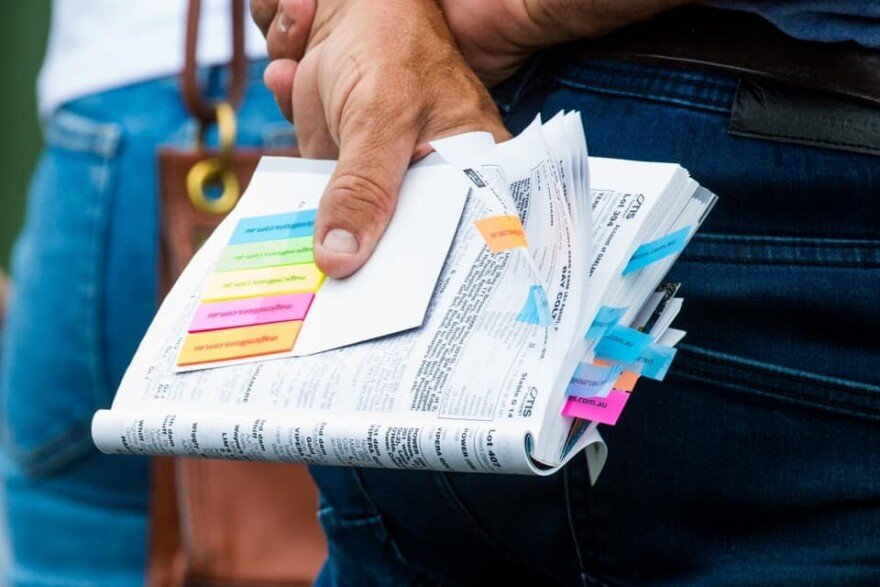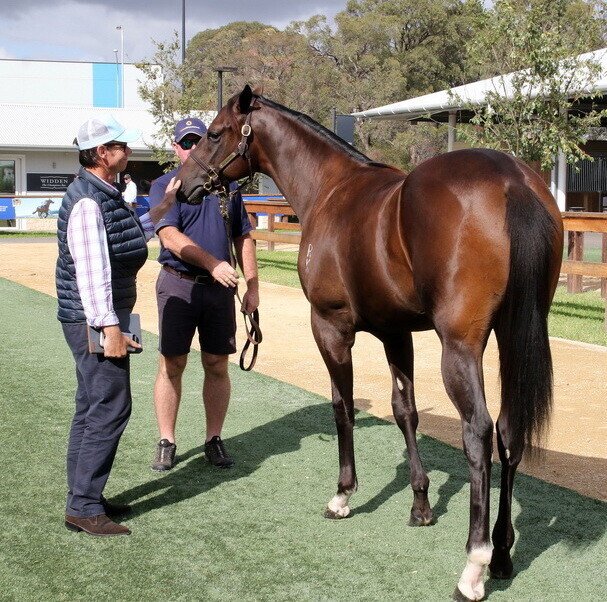FAQs
What Does the Word ‘Pinhook’ Mean?
The official definition reads: Pinhooking: The practice of buying livestock, now especially a very young racehorse, in the expectation of selling it on later at a profit.
The word Pinhook is used generically by people within the bloodstock industry to describe an array of bloodstock trading. Such as:
Purchasing weanlings to resell as yearlings
Purchasing yearlings to re-sell as 2 year olds in training
Purchasing mares off the track to re-sell in foal.
Pinhooking, while a core part of PBI’s business, is one of only five services we provide.
Does PBI Offer Shares in Horses They Purchase?
In some cases yes.
PBI selects and purchases horses on behalf of individual client’s orders.
In this instance PBI are paid on a normal commission basis.
PBI also purchase horses for themselves (& partners) with the intention of re-selling at a later date. Equity in purchased horses depends on the amount each shareholder is willing to invest.
If a shareholder wishes to take 25% of a horse regardless of whether it was purchased for $25,000 or $200,000, then from the point of purchase through to the point of sale that person will be up for 25% of expenses and 25% of the (hopeful) resulting profit.
New partners and enquiries are always welcome.
What are the Ongoing Costs to Pinhook a Horse?
The purchase price aside, weanling's bought to be re-sold as yearlings, for 100% of the horse the costs will be approximately $15,000 to <$20,000. The variance in cost is normally dependent upon the time from when you purchase the weanling and when you sell the yearling.
Weanlings are usually bought and sold, either privately or at auction, from Feb through to June. They are sold as yearlings between January and June of the following year.
Purchasing yearlings with the intention of reselling at a 2 year old in training sale is usually also around the $15,000 to $20,000 range. Yearlings are purchased from Jan through to June, and re-sold in Oct or Nov. If a yearling is kept with the intention of trialling and selling to the Asian market, the cost will be greater than $20,000.
Buying mares of the track and trading them at a later date once in foal is usually around the $12-$15,000 mark. Again a lot of the variance depends on timing – when you buy and when you sell. However this cost does NOT take into account the service fee of the nominated stallion. In some instances the service fee can be deferred until after the mare is re-sold.
What are PBI’s Fees?
Private Purchase/Sales Brokerage:
PBI charge a brokerage commission on a sliding scale. 10% + GST on purchase/sale proceeds for any horse sold up to the first $100,000. 5% + GST on purchase/sale proceeds for any amount over and above $100,000. E.g. for a horse valued at $150,000, the commission charged will be $12,500 + GST. I.e.10% x $100,000 ($10k) + 5% x $50,000 ($2.5k)
Auction Representation:
5% + GST of purchase price + expenses. Expenses may include vetting; pedigree consultation, airfares, accommodation, daily expenses. Depending on the value of the horse being sought, and/or the services required PBI is happy to discuss customising the service and associated fees.
Valuations for Syndication PDS, Insurance, Financial Planning, etc:
The cost is $350 + GST per horse.
Bloodstock Portfolio Management
Depending on the advice being sought or management services required PBI is happy to discuss customising the service and fees. An example may include charging a set monthly fee per horse for the management of horses/broodmares in or out of work incorporating regular communication with trainer/stud master, account paying, monthly reporting, photos, etc.
How Much Does it Cost to Buy a Racehorse?
Probably the most common question for those not yet familiar with the Racing game. This is the beauty of racing ….any person no matter what their budget has the chance to buy into a great racehorse. Champion racehorses have been purchased for only a few thousand dollars, such as Takeover Target who cost only $1,250 but ended up winning $6.1 million.
Champion mare Black Caviar cost $210,000 and won $7.9 million. Black Caviar’s brother, named All Too Hard, cost $1,025,000, won $2.2 million on the track, and now stands at stud commanding a fee of up to $60,000.
While the amount of money spent on an individual racehorse does not guarantee success PBI can greatly increase the probability of of success and assist you in purchasing the best possible candidates for the budget you have.
We would also say that PBI has studied in depth the most important races on the Australasian racing calendar e.g. Magic Millions 2 year old Classic, Golden Slipper, Caufield Guineas, Hong Kong Derby, etc. and among other things, we can tell you the historical average purchase price for the winners of these top races.
Can You Guarantee Me a Winner?
PBI would like to say yes, however the reality is we cannot guarantee anyone a winner, at any level, no matter how much money you spend. What we can guarantee however is that PBI will provide professional, honest and realistic advice at all times, with high transparency at a reasonable rate.
We have the experience, structures in place, and professional support to select the right horses, given your goals and budget, which we believe will give you the highest probability of achieving success.
PBI will also connect you with the very best people on the racetrack and on the stud farms so that your investment will be in the hands of professionals who will not only maximise your success but ensure your ownership experience is as enjoyable as possible.
What Are the Costs to Keep a Racehorse?
This varies, depending on the location around Australasia and varies from trainer to trainer.
Daily training rates in the metropolitan cities of Sydney, Melbourne and Brisbane etc. range from $85 a day up to $130 a day + incidentals, so when a horse is in full work this equates to anywhere from $3,500 up to $5,000 per month.
On average a horse is in training for around 9 months of the year with the other 3 months spent out spelling and taking a break. Spelling rates range from around $20-$30 a day so $700 - $1000 a month.
In the provincial areas training rates are generally less expensive and range between $70 -$85 a day + incidentals, so around $2,500 to $3,000 a month.











